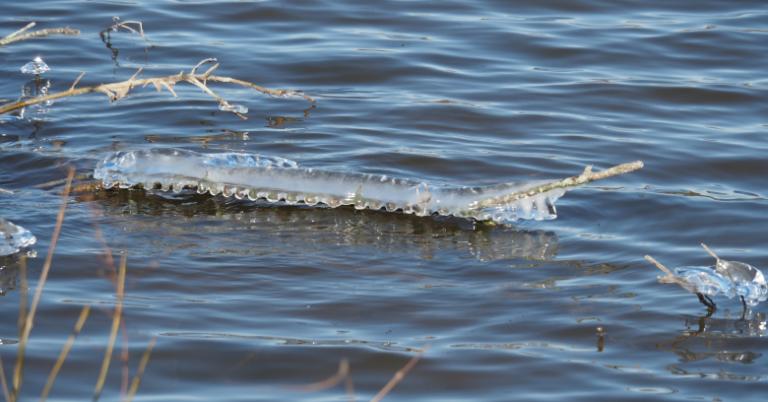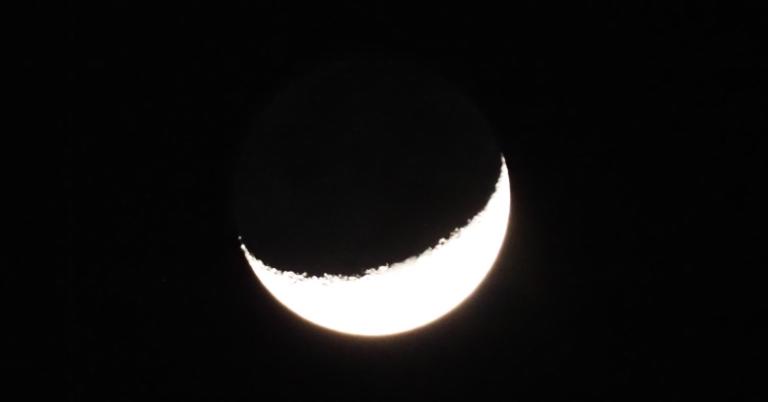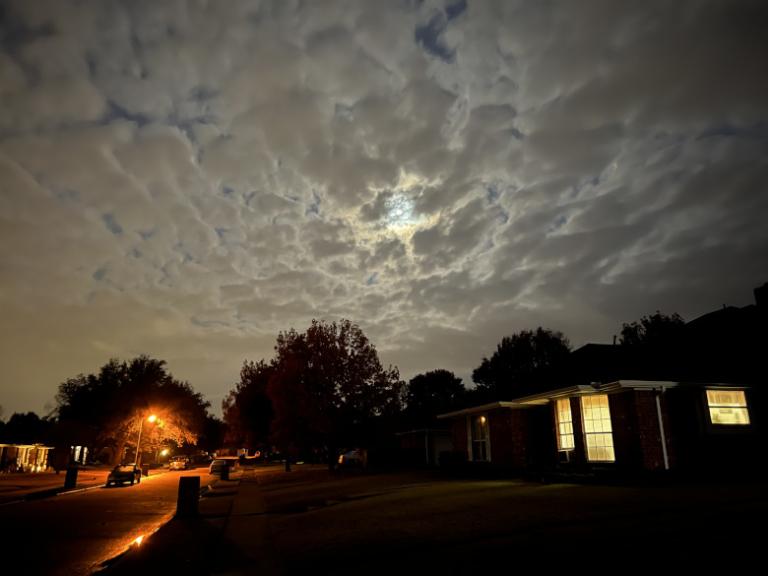Last week, two people – one Pagan, one Christian – asked me “how did the universe come into being?” I wasn’t able to go into any depth with either answer, and I want to do that here in this post.
I want to start with the only answer we can be certain is correct: we don’t know.
I’ve heard fundamentalists say “if you can’t explain why there’s something rather than nothing, you don’t have a religion.” First of all, why there’s something rather than nothing isn’t a question of religion. It’s a question of metaphysics (literally, “before physics” or “above physics”), which belongs in the realm of philosophy. Religion (from the Latin religare meaning “to bind together” and religio meaning “obligation and reverence”) is concerned with how we form and maintain relationships with our Gods, our ancestors, our fellow humans, and the world around us. You don’t have to know how we got here to figure out how we can best live given that we are here.
Secondly, just because you want a clear and simple explanation doesn’t mean such an explanation exists. To paraphrase early 20th century journalist H.L. Mencken, “for every complicated question, there’s an answer that is simple, neat, and wrong.” And there is perhaps no more complicated question than how “all this” began.
Still, we can explore this question and develop partial answers and tentative answers. They will never be complete answers, certainly not in the lifetime of anyone alive today and probably not ever – I think. But they can be enough to help us understand our place in the universe, even if they don’t entirely satisfy our curiosity.
Creation myths are myths, not proto-science
Most (though not all) cultures have creation myths – stories they told to explain where the world came from and their place in it. These are not “primitive” attempts at science. They’re myths – stories to live by.
Our ancient ancestors were biologically identical to us. They had the same brains and the same intelligence as us. The idea that they childishly believed their creation myths were what literally happened is insulting to them. Their myths said “hey, we don’t know what happened, but here’s a story that helps us understand where we belong in all this, and that’s enough.”
Fundamentalists who claim their creation myth is literal truth miss the point. So do those of us who think our ancestors believed their myths were historical accounts. They knew their stories were myths – and that was enough for them.
Science tells us much – but not everything
Modern astrophysics has done an amazing job of observing the visible universe, examining the evidence, deducing the laws of nature, and “running back the film” of the development of the universe. We can be very confident that the Big Bang happened about 14 billion years ago. The problem is that when you get within a tiny fraction of a second of the Big Bang, the laws of physics break down.
Perhaps our science is simply not far enough along yet. Quantum physics, string theory, and the multiverse theory are attempts to fill in that tiny but critically important blank in the history of the cosmos. Here’s a very good piece from Scientific American that concludes with this quote:
Cosmology by its very nature is arrogant. The idea that we can understand something as vast in both space and time as our universe is, on the face of it, preposterous.
Current science can tell us what happened. It can’t tell us how there was anything there to happen. And that leads to speculation.
The Prime Mover is intuitively attractive but not necessarily correct
Our intuitive observations tell us that everything comes from something that preceded it. The Greek philosopher Aristotle (384–322 BCE) said this means there must be an “unmoved mover” – something or someone who began the process of creation.
This idea made its way into Christianity (there’s a lot more Greek philosophy in Christianity than most Christians care to admit), where Christians claim that their God created the universe. However, we should remember that Aristotle was a polytheist, not a monotheist and certainly not a proto-Christian. His ideas were formed and presented in a polytheist world.
The details of Aristotle’s thinking are far too complex for a brief blog post. There are two things that are important for us here. One is that whatever his Prime Mover may be, it is not any being who actively participates in this world. It’s not any of the Many Gods and it is not the Christian God.
The other thing of importance is that the Prime Mover is an intellectual speculation, not an observation or a testable hypothesis. That doesn’t mean it’s wrong – it just means it’s not provable.
Fundamentalists insist the universe must have a creator and they insist that creator is their God. When asked where their God came from, they say “he always was” (and it’s always “he” and never “she” but that’s another rant for another time). That just pushes the problem back a level. If their Creator God has always existed, why can’t the universe have always existed?
On some days I’m a pantheist
Pantheism is the idea that the universe and the divine are one and the same. It’s more than that – the Wikipedia page on pantheism is a good introduction. But for our purposes here, what’s important is the possibility that the universe has always existed and will always exist (that it appears to be continuously expanding raises some concerns about that, but perhaps not).
Pantheism is quite compatible with polytheism. Gods are the mightiest of spirits, but They are spirits similar to other-than-divine spirits (which include humans). They can live and participate in an all-encompassing universe the same as we can.
If this is the case, then the universe exists on its own account – it needs no creator.
Further, if the human soul (the essence of who and what we are) is immortal going forward, perhaps it’s also immortal going backward. Perhaps we too have always existed. If pantheism is true, then I would argue that we must have always existed, because we are a part of the universe. Perhaps birth is what gives us our individuality from the undifferentiated whole. Think – metaphorically, not literally – of stars and planets being “born” from the undifferentiated whole that preceded the Big Bang.
Or perhaps it’s more complicated than that. Simple answers are comfortable, but they’re rarely complete.
But it’s possible that the universe (or maybe the multiverse, if there is such a thing) is all there is, both physically and spiritually. If so, it was not created. It simply is.
On some days I’m a panentheist
Panentheism is the idea that the divine is in all things, but that it also transcends all things. That sentence greatly oversimplifies about 250 to 350 years (depending on whether you count panentheism as beginning with Spinoza, which I’m not really qualified to judge) of deep philosophical and metaphysical thinking. But it’s the logical conclusion that flows from Aristotle’s Prime Mover.
If panentheism is true, then there is a God (if we can properly use that term here, and I’m not sure we can) from whom all the universe flows. Neoplatonism proposes that this is an on-going eternal process, not a one-time event. That would fit nicely into the multiverse theory.
No culture’s creation myth is literally true. But it is possible there is a Creator who is in all things but also separate from them.
On some days I believe matter flows from consciousness
We experience our consciousness through our brains (we think) and our brains are matter, so many of us assume consciousness flows from matter. But animism teaches that trees, for example, have consciousness – and trees clearly do not have brains. Perhaps consciousness does not flow from matter – perhaps consciousness is primary.
This turns the whole creation model upside down. Perhaps the reason science can’t see what existed before the Big Bang is that they’re looking for a material answer to what is ultimately a question of consciousness. Or a question of spirits. Or both.
Of course, if matter does flow from consciousness, then we’re back to the question of “which consciousness” or “whose consciousness”? And that likely points back to either pantheism or panentheism.
Though it’s equally likely that it points to some other possibility that we’ve never even imagined.
On most days I’m creation-agnostic
I am eternally curious. Part of my mission in life is to learn as much as I possibly can, for the sheer joy of knowing. I would love to know all about the ultimate origin of the universe, whether material or spiritual or both.
But I don’t think I can.
My best guess is that the ultimate origin of the universe is something that is not merely beyond our current science, but beyond our capacity to know as humans with powerful but still limited brains. To quote biologist J.B.S. Haldane, “the universe is not only queerer than we suppose, but queerer than we can suppose.”
Further, this question isn’t particularly relevant to our quest to live a deep, meaningful, and virtuous life. How it all began 14 billion years ago is far less important than what we do here and now with the few years allotted to us. How we relate to an unmoved mover who needs nothing and wants nothing – if a relationship with such a being is even possible – is far less important than how we relate to our Gods, our ancestors, and all the many persons with whom we share this world.
I do wonder about the ultimate origins of the universe. I can’t help but wonder.
But I spend most of my time wondering about other things.
We could do worse than a new creation myth
Our ancient ancestors wondered too, and so they told stories. Some of those stories became myths. Myths are not “made up stories” – they’re stories to live by. They’re stories that help us orient ourselves in the wider world.
What can’t be understood directly can often be understood metaphorically.
I like the myth that says in the beginning, all was one. And then it exploded into stars and planets. On at least one of those planets there was water. And then life began, though we do not know how. And from that first life grew microorganisms, and complex life, and grass, and trees, and fish, and dinosaurs, and a seemingly insignificant group of creatures called mammals. And then a meteor struck the Earth and killed the dinosaurs and made room for what would become primates. And then came Australopithecus and Homo Habilis and Homo Erectus and Neanderthals and Denisovans and finally, a species known as Homo Sapiens.
And here we are, part of this very new species, living lives that are so very short, but experiencing it all and being a part of it all. And as we do, forming and maintaining relationships with Gods and ancestors and spirits and other living creatures and our fellow humans. We are separate, but we are not alone.
And we wonder if someday, we will all be one once again.




















